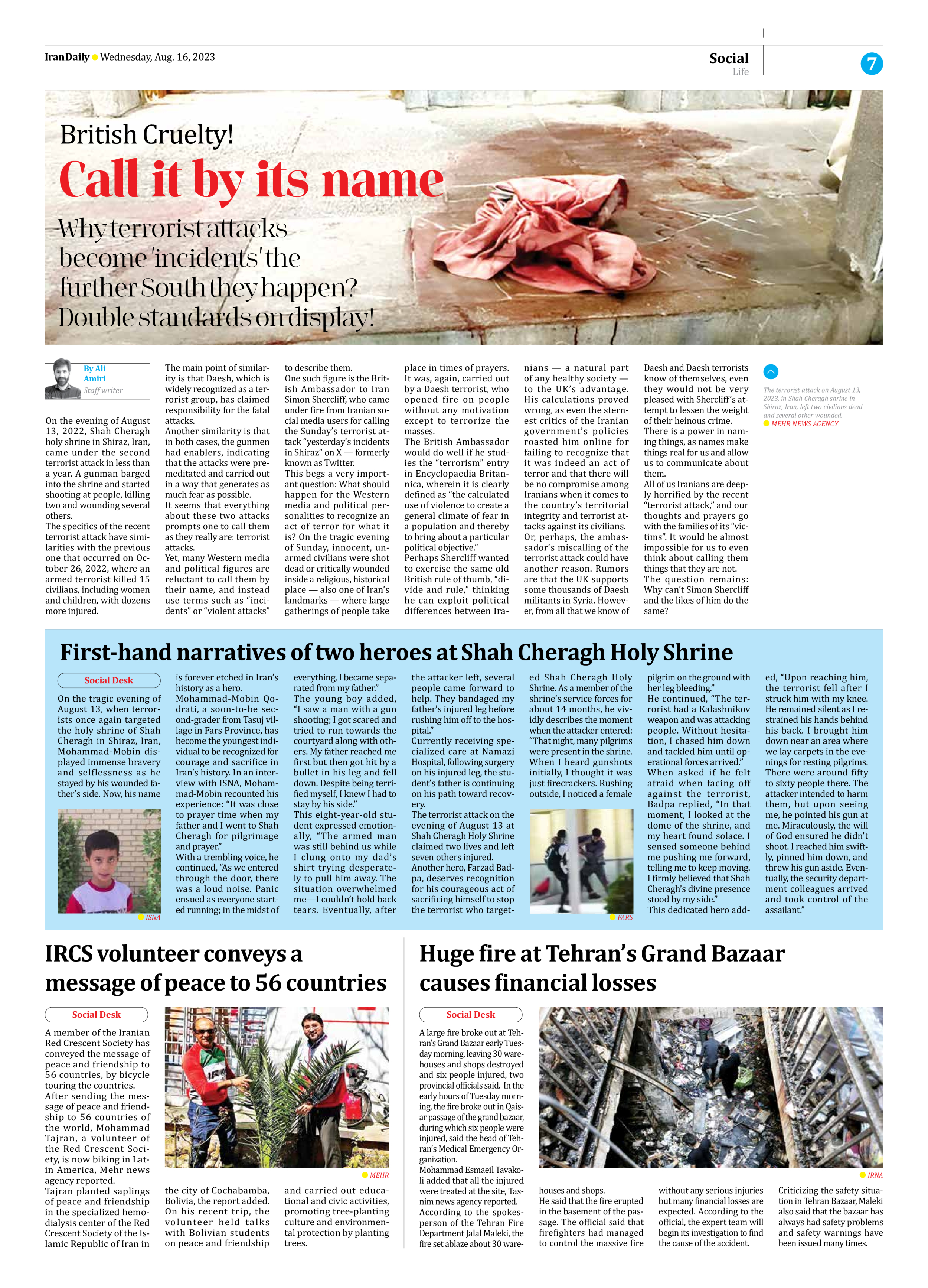
British Cruelty!
Call it by its name
Why terrorist attacks become ’incidents’ the further South they happen? Double standards on display!
By Ali Amiri
Staff writer
On the evening of August 13, 2022, Shah Cheragh holy shrine in Shiraz, Iran, came under the second terrorist attack in less than a year. A gunman barged into the shrine and started shooting at people, killing two and wounding several others.
The specifics of the recent terrorist attack have similarities with the previous one that occurred on October 26, 2022, where an armed terrorist killed 15 civilians, including women and children, with dozens more injured.
The main point of similarity is that Daesh, which is widely recognized as a terrorist group, has claimed responsibility for the fatal attacks.
Another similarity is that in both cases, the gunmen had enablers, indicating that the attacks were premeditated and carried out in a way that generates as much fear as possible.
It seems that everything about these two attacks prompts one to call them as they really are: terrorist attacks.
Yet, many Western media and political figures are reluctant to call them by their name, and instead use terms such as “incidents” or “violent attacks” to describe them.
One such figure is the British Ambassador to Iran Simon Shercliff, who came under fire from Iranian social media users for calling the Sunday’s terrorist attack “yesterday’s incidents in Shiraz” on X — formerly known as Twitter.
This begs a very important question: What should happen for the Western media and political personalities to recognize an act of terror for what it is? On the tragic evening of Sunday, innocent, unarmed civilians were shot dead or critically wounded inside a religious, historical place — also one of Iran’s landmarks — where large gatherings of people take place in times of prayers. It was, again, carried out by a Daesh terrorist, who opened fire on people without any motivation except to terrorize the masses.
The British Ambassador would do well if he studies the “terrorism” entry in Encyclopaedia Britannica, wherein it is clearly defined as “the calculated use of violence to create a general climate of fear in a population and thereby to bring about a particular political objective.”
Perhaps Shercliff wanted to exercise the same old British rule of thumb, “divide and rule,” thinking he can exploit political differences between Iranians — a natural part of any healthy society — to the UK’s advantage. His calculations proved wrong, as even the sternest critics of the Iranian government’s policies roasted him online for failing to recognize that it was indeed an act of terror and that there will be no compromise among Iranians when it comes to the country’s territorial integrity and terrorist attacks against its civilians.
Or, perhaps, the ambassador’s miscalling of the terrorist attack could have another reason. Rumors are that the UK supports some thousands of Daesh militants in Syria. However, from all that we know of Daesh and Daesh terrorists know of themselves, even they would not be very pleased with Shercliff’s attempt to lessen the weight of their heinous crime.
There is a power in naming things, as names make things real for us and allow us to communicate about them.
All of us Iranians are deeply horrified by the recent “terrorist attack,” and our thoughts and prayers go with the families of its “victims”. It would be almost impossible for us to even think about calling them things that they are not.
The question remains: Why can’t Simon Shercliff and the likes of him do the same?







